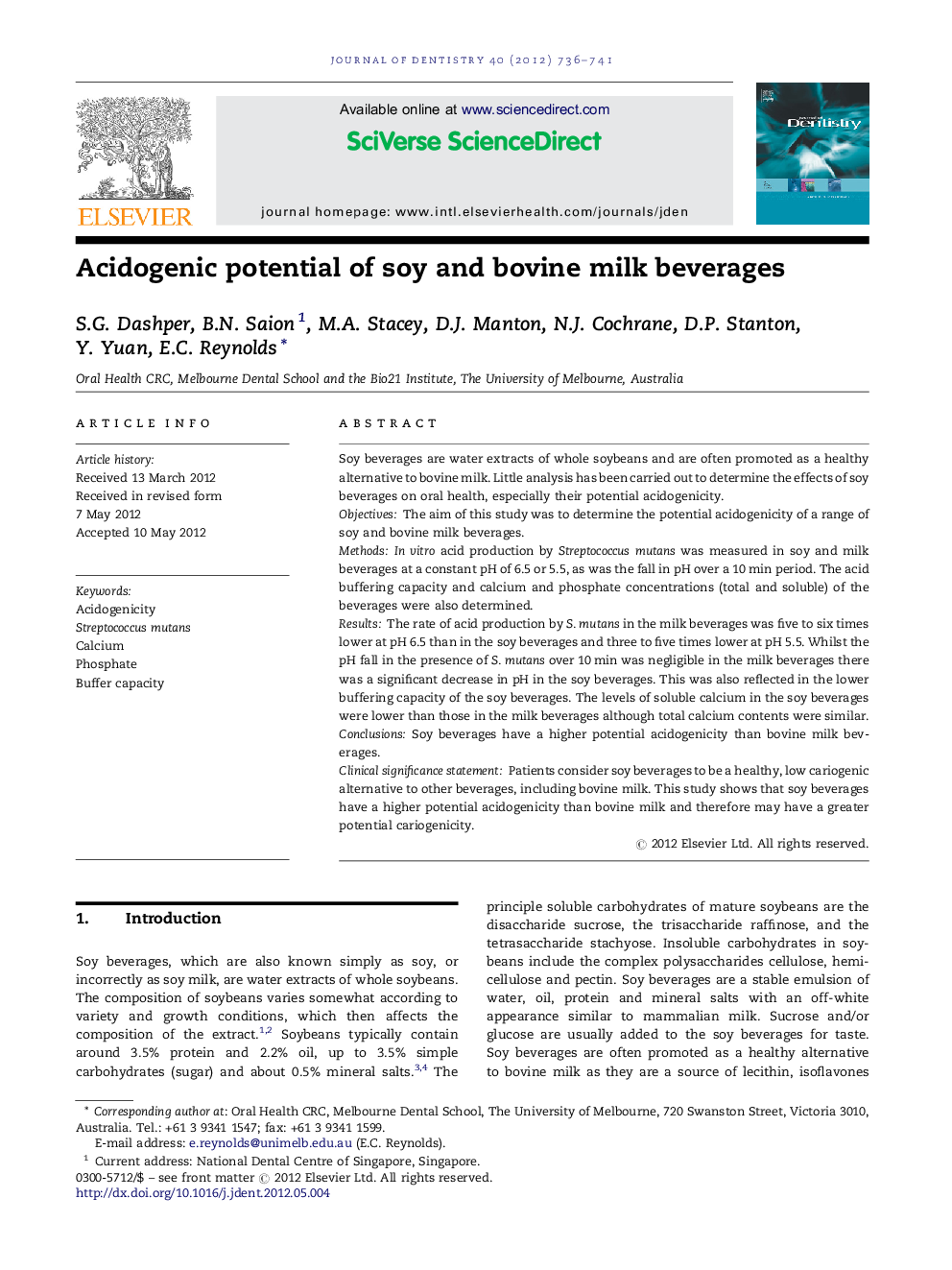| Article ID | Journal | Published Year | Pages | File Type |
|---|---|---|---|---|
| 3145863 | Journal of Dentistry | 2012 | 6 Pages |
Soy beverages are water extracts of whole soybeans and are often promoted as a healthy alternative to bovine milk. Little analysis has been carried out to determine the effects of soy beverages on oral health, especially their potential acidogenicity.ObjectivesThe aim of this study was to determine the potential acidogenicity of a range of soy and bovine milk beverages.MethodsIn vitro acid production by Streptococcus mutans was measured in soy and milk beverages at a constant pH of 6.5 or 5.5, as was the fall in pH over a 10 min period. The acid buffering capacity and calcium and phosphate concentrations (total and soluble) of the beverages were also determined.ResultsThe rate of acid production by S. mutans in the milk beverages was five to six times lower at pH 6.5 than in the soy beverages and three to five times lower at pH 5.5. Whilst the pH fall in the presence of S. mutans over 10 min was negligible in the milk beverages there was a significant decrease in pH in the soy beverages. This was also reflected in the lower buffering capacity of the soy beverages. The levels of soluble calcium in the soy beverages were lower than those in the milk beverages although total calcium contents were similar.ConclusionsSoy beverages have a higher potential acidogenicity than bovine milk beverages.Clinical significance statementPatients consider soy beverages to be a healthy, low cariogenic alternative to other beverages, including bovine milk. This study shows that soy beverages have a higher potential acidogenicity than bovine milk and therefore may have a greater potential cariogenicity.
